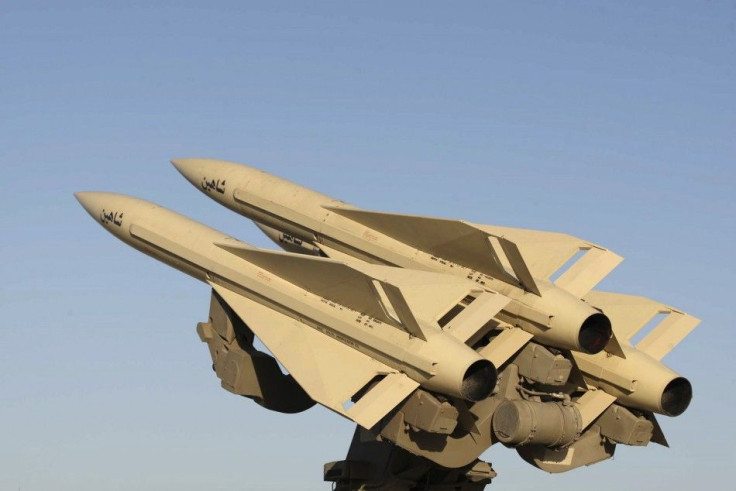Iran Threatens U.S. And Israel, Says Its Missiles Could Strike Bases Within Minutes Of An Attack

Iran threatened Wednesday to destroy U.S. military bases immediately following any attack on its own territory.
Amir Ali Hajizadeh, aerospace commander of the Revolutionary Guard, said 35 U.S. bases across the Middle East were within range of Iran's ballistic missiles, according to the Iranian Fars news agency.
These bases are all in range of our missiles, and the occupied lands [Israel] are also good targets for us, he said. We have thought of measures to set up bases and deploy missiles to destroy all these bases in the early minutes after an attack.
The threat comes amid the long diplomatic standoff regarding Iran's nuclear program.
Iran currently employs nuclear technology for energy and medicinal purposes; it is presumed to be far from reaching the uranium enrichment levels necessary for nuclear weaponry. But a 2011 investigation by the International Atomic Energy Agency found evidence of intent, reporting it likely that Iran has carried out activities relevant to the development of a nuclear device.
This resulted in an intensification of international efforts to prevent Iran's acquisition of nuclear weapons. Economic sanctions and diplomatic isolation are in place, with hopes of convincing Iran to cooperate more readily by opening up its facilities for more thorough inspections, relinquishing any stockpiles of enriched uranium and disavowing the pursuit of weapons-grade enrichment.
Currently, Israel is the strongest advocate for tough action against Iran. Prime Minister Benjamin Netanyahu has said that all options are on the table to prevent further nuclear development in Iran, and that sanctions and diplomacy have so far failed to deliver results.
The Obama administration has attempted to soften that tone somewhat, resisting the language of military intervention in favor of more diplomatic means of coercion. And the European Union has ramped up efforts to put economic pressure on Iran, implementing a tough new round of sanctions on Sunday.
Talks are also in progress. Following several rounds of failed political negotiations, reports Reuters, technical discussions meant to elucidate the nature of Iran's nuclear program are ongoing.
In this environment, Iran's threats against U.S. bases are worrisome but not necessarily critical; defense analysts point out that belligerent assertions from Tehran are often exaggerated.
© Copyright IBTimes 2024. All rights reserved.






















